 8 citations,
April 2015 in “Transboundary and Emerging Diseases”
8 citations,
April 2015 in “Transboundary and Emerging Diseases” A hospital outbreak of catheter infections in calves was caused by a bacteria from a beef herd, leading to longer hospital stays, more drug use, and calf deaths.
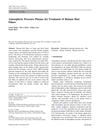 5 citations,
February 2015 in “Journal of Bio- and Tribo-Corrosion”
5 citations,
February 2015 in “Journal of Bio- and Tribo-Corrosion” Plasma jet treatments can clean hair and might replace peroxide for hair care.
 4 citations,
May 2021 in “Lasers in Surgery and Medicine”
4 citations,
May 2021 in “Lasers in Surgery and Medicine” Light therapy reduces scalp inflammation, boosts hair regrowth with Minoxidil 2%.
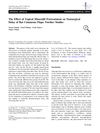 4 citations,
June 2013 in “Aesthetic Plastic Surgery”
4 citations,
June 2013 in “Aesthetic Plastic Surgery” Minoxidil improved rat skin flap survival but was less effective than surgical methods.
 4 citations,
October 2012 in “Expert Review of Dermatology”
4 citations,
October 2012 in “Expert Review of Dermatology” Dermoscopy greatly improves melanoma diagnosis and reduces unneeded surgeries.
 4 citations,
July 2008 in “British journal of dermatology/British journal of dermatology, Supplement”
4 citations,
July 2008 in “British journal of dermatology/British journal of dermatology, Supplement” Poor response to topical immunotherapy in alopecia areata patients is linked to impaired cell responses.
 2 citations,
March 2015 in “Clinical and Experimental Dermatology”
2 citations,
March 2015 in “Clinical and Experimental Dermatology” Azathioprine can cause unusual hair loss, which may reverse after stopping the drug.
 2 citations,
July 1998 in “Dermatologic Clinics”
2 citations,
July 1998 in “Dermatologic Clinics” European dermatologic treatments focus on lifestyle and psychosocial factors, use diverse methods like baths and climate therapy, and emphasize the importance of diet and supplements for skin health.
 1 citations,
April 2020 in “Clinical, Cosmetic and Investigational Dermatology”
1 citations,
April 2020 in “Clinical, Cosmetic and Investigational Dermatology” Acyclovir cream may slow down hair growth, suggesting it could be a new treatment for excessive hairiness.
 1 citations,
April 2018 in “Lasers in Surgery and Medicine”
1 citations,
April 2018 in “Lasers in Surgery and Medicine” New treatments and technologies in laser medicine show promise for improving skin conditions, fat reduction, cancer treatment, wound healing, and hair restoration.
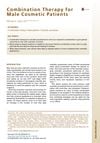 1 citations,
November 2017 in “Dermatologic clinics”
1 citations,
November 2017 in “Dermatologic clinics” Combination therapies can improve hair loss treatment results and boost self-confidence in men.
 1 citations,
October 2013 in “BMJ”
1 citations,
October 2013 in “BMJ” A man's sudden hair loss and color change to white was diagnosed as alopecia areata and it improved on its own after six months.
 July 2023 in “Journal of lasers in medical sciences”
July 2023 in “Journal of lasers in medical sciences” Red laser therapy helped regrow hair in an alopecia areata patient within 21 days.
 December 2022 in “Medical lasers”
December 2022 in “Medical lasers” Low-level laser therapy may help with hair regrowth in alopecia areata but its effectiveness for psoriasis and atopic dermatitis needs more research.
 June 2020 in “Journal of Dermatological Treatment”
June 2020 in “Journal of Dermatological Treatment” Use telemedicine and strict hygiene for safe hair and scalp treatments during COVID-19.
 January 2020 in “Journal of The European Academy of Dermatology and Venereology”
January 2020 in “Journal of The European Academy of Dermatology and Venereology” In 2019, dermatology and venereology improved skin cancer imaging, advanced in treating skin conditions like psoriasis, and explored the skin microbiome's role in diseases.
 December 2019 in “Buletin de psihiatrie integrativă”
December 2019 in “Buletin de psihiatrie integrativă” Skin treatments can improve both skin health and emotional well-being, but they require careful management of patient expectations and potential addiction risks.

Low-level laser therapy may help stem cells grow and function better, aiding in healing and tissue repair.
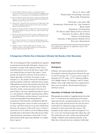 February 2015 in “Dermatologic Surgery”
February 2015 in “Dermatologic Surgery” Smaller reticle sizes are as accurate as the standard size for measuring hair density in hair restoration.

No treatment alters the natural progression of alopecia areata, and effectiveness varies, with some possibly working better in children.

 June 2002 in “Seminars in Cutaneous Medicine and Surgery”
June 2002 in “Seminars in Cutaneous Medicine and Surgery” Hair transplantation has improved to more natural-looking results and is complemented by effective non-surgical treatments, with ongoing research into hair follicle cloning.
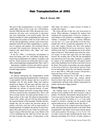 January 2001 in “Current problems in dermatology”
January 2001 in “Current problems in dermatology” Hair transplantation has improved to use smaller grafts for a natural look and may include follicle cloning in the future; non-surgical treatments are also effective.
 January 1996 in “Dermatologic Surgery”
January 1996 in “Dermatologic Surgery” Hair restoration can effectively treat hair loss.
 January 1989 in “Side effects of drugs annual”
January 1989 in “Side effects of drugs annual” Some cancer and immune system drugs can cause serious side effects, including heart, lung, nerve, and organ damage, which need careful monitoring and management.
 393 citations,
November 2000 in “Archives of General Psychiatry”
393 citations,
November 2000 in “Archives of General Psychiatry” Testosterone is important for men's sexual function, may help some women's sexual desire, while other hormones and neurotransmitters also play complex roles in sexual behavior.
 306 citations,
April 2019 in “International Journal of Molecular Sciences”
306 citations,
April 2019 in “International Journal of Molecular Sciences” The skin has a complex immune system that is essential for protection and healing, requiring more research for better wound treatment.
 305 citations,
March 2018 in “International journal of molecular sciences”
305 citations,
March 2018 in “International journal of molecular sciences” The document concludes that the understanding of scar formation is incomplete and current prevention and treatment for hypertrophic scars and keloids are not fully effective.
 291 citations,
January 2014 in “The Scientific World Journal”
291 citations,
January 2014 in “The Scientific World Journal” Lichen Planus is a less common condition affecting skin and mucous membranes, with various types and associated risk factors, challenging to diagnose, significantly impacts life quality, and may have a risk of cancerous changes in oral lesions.
 271 citations,
December 2005 in “New England journal of medicine/The New England journal of medicine”
271 citations,
December 2005 in “New England journal of medicine/The New England journal of medicine” The document likely offers guidance on treating a woman's excessive hair growth, considering her symptoms and obesity.





























